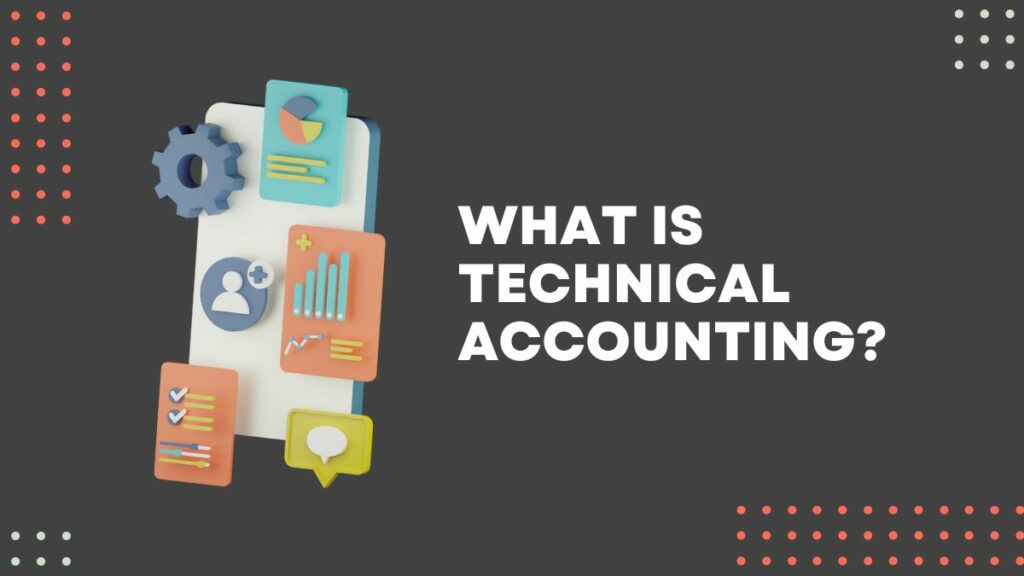Last updated on September 1st, 2025 at 04:54 pm
In the world of finance, things can get a bit tricky when you move beyond the basics. That’s where technical accounting comes in.
If you’ve ever found yourself staring at complex financial reports, dealing with regulatory headaches, or just wondering how big companies keep everything straight, you’re not alone. Technical accounting is the toolset that helps professionals like you navigate those choppy financial waters.
But what exactly is it? Why is it so crucial in today’s world of finance? In this guide, we’ll break down the fundamentals of technical accounting, explain its growing importance in modern finance, and give you the inside scoop on how a CPA course can level up your skills and career.
Ready to dive in? Let’s go!
Understanding Technical Accounting
As a discipline, technical accounting can be seen as the application of specific accounting principles, rules and standards. These rules often pertain to complex financial reporting and regulatory requirements. Needless to say, this is an advanced area of accounting and involves the preparation and analysis of financial statements in line with international financial reporting standards (IFRS), US GAAP (Generally Accepted Accounting Principles), and other local regulations.
Distinct from general accounting, which concerns itself with routine business operations, technical accounting pursues deeper probing of transactions such as mergers and acquisitions, financial derivatives, revenues and other operating income, and leases. It ensures that a firm’s accounting records are accurate, complete and presented in accordance with respective legal requirements.
The Fundamentals of Technical Accounting
Before diving into more specialised topics, it’s crucial to grasp the fundamentals of technical accounting, which include:
- Adhering to the set regulatory standards – Technical accountants guarantee that all the financial records and reports compiled are in compliance with the current set regulatory agencies such as SEC, FASB or IASB.
- Financial Reporting – They specialise in the production and presentation of general financial reports so that any business entity can give the owners, creditors, investors, and other stakeholders accurate financial reports to act on.
- Revenue Recognition – Another important aspect of technical accounting is the recognition of revenues, which map income statements with packages of standards such as IFRs 15.
- Taxation & Audit Preparation – Technical accountants analyse and work on the technical aspects of taxation preparations and audit processes among other key aspects under international taxation laws.
Now, let’s try to understand the importance of technical accounting in modern finance.
The Importance of Technical Accounting in Modern Finance
For the present day’s increasingly complex and unpredictable financial environment, technical accounting plays a most crucial part. Here are some reasons why it holds importance in modern finance:
- Regulatory Complexity: Given that there are changes to financial reporting standards from time to time, companies need technical professional accountants to guide them in compliance with the rules to avoid problems related to accountability.
- Transparency for Stakeholders: Sophisticated investors, as well as regulatory authorities, call for increased transparency. The technical accountant has a critical responsibility of ensuring that the reported figures are credible, and are in compliance with the provisions of the law.
- Strategic Decision-making: Accounting according to standard technical accounting procedures helps create financial statements that are of great use to management in making decisions such as acquiring new outlets, expanding or restructuring.
- Mitigating Financial Risks: Technical accountants also assist in recognising and avoiding exposure to financial statement risks or failure to meet regulatory standards so as to avoid incurring penalties or damaging the business image.
As the finance industry continues to evolve with the integration of new technologies and regulations, technical accounting professionals are at the forefront of ensuring accuracy and compliance in all financial dealings.
How a CPA Course Can Boost Your Technical Accounting Skills?
For anyone who wants to pursue a career in technical accounting, it may be necessary to attend a Certified Public Accountant (CPA) course. The CPA certification is recognised internationally and teaches its candidates sophisticated aspects of accounting, audit, taxation and financial reporting.
The CPA course targets the particular knowledge required for dealing with intricate regulations, allowing professionals to provide an edge when handling disclosures, audits and compliance functions. Therefore, it is important for any finance professional to have a CPA course when offering their services to any organisation to show how proficient they are in technical accounting.
Conclusion: Taking Your Technical Accounting Career to the Next Level
It’s crucial to have some technical accounting skills if you want to move forward in your finance career. This remains important, especially in the current complex regulatory financial environment. Whether you are working with a complicated financial process, need to stay with regulatory requirements, or need to analyse a strategic decision, technical accounting knowledge will provide numerous opportunities.
Among the most useful strategies for deepening your knowledge in the field of technical accounting, the best choice is to complete the Certified Public Accountant (CPA) course offered by Imarticus Learning.
This globally recognised program covers more than the principles of accounting. It also goes further to include areas such as the regulatory environment and aspects of auditing and taxation as they apply in the international context. By enrolling under Imarticus Learning, you will learn all that is necessary to succeed in today’s complex business environment and become an expert in technical accounting.

